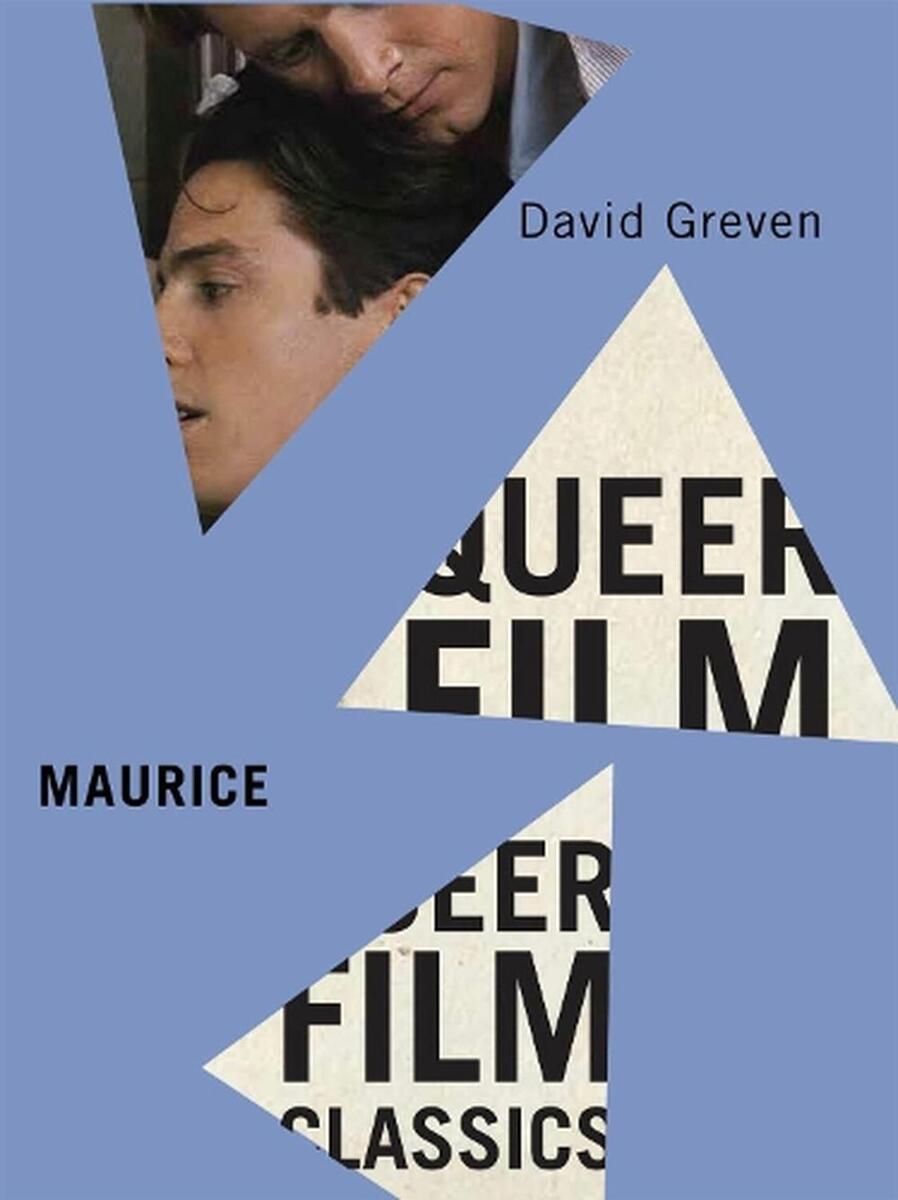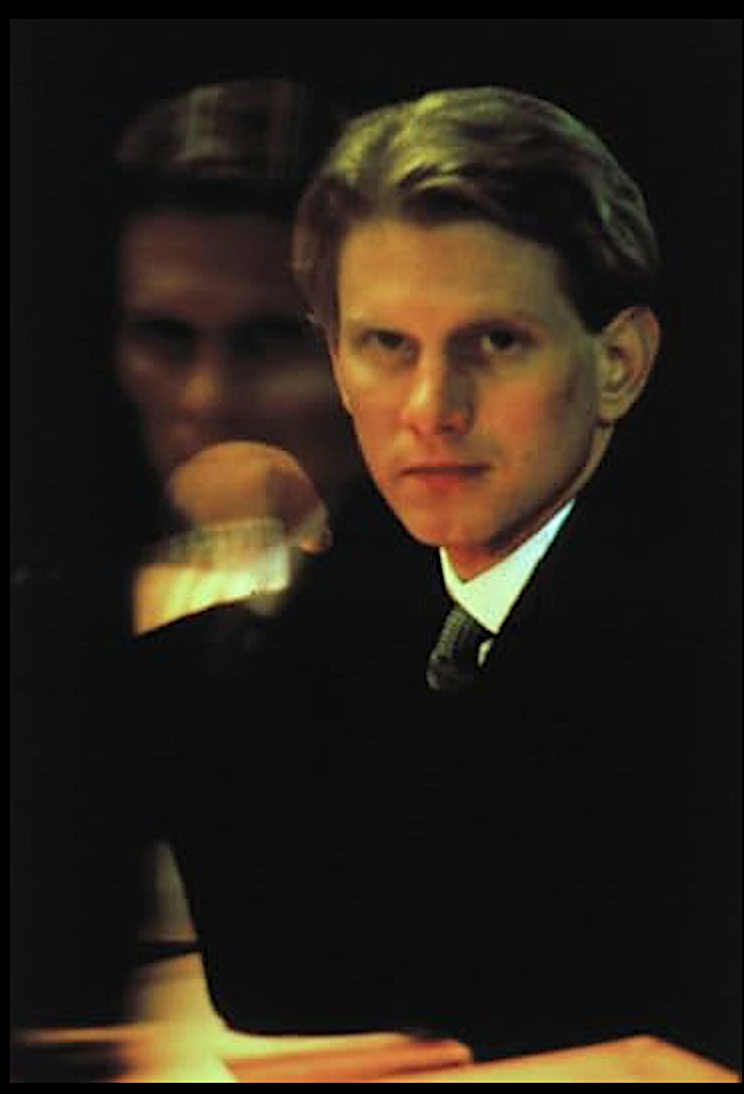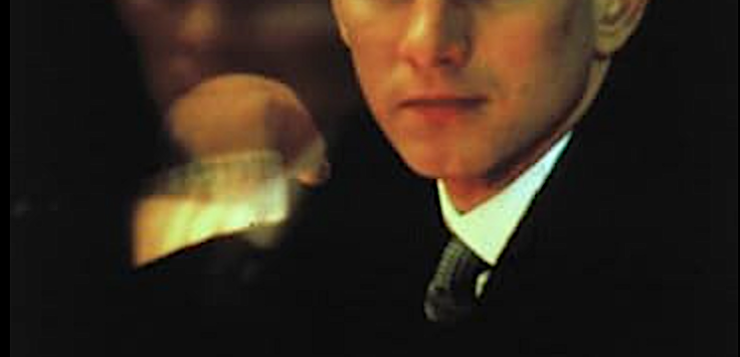 WILL & GRACE
WILL & GRACE
by Tison Pugh
Wayne State U. Press. 125 pages, $19.99
 MAURICE
MAURICE
by David Greven
McGill-Queen’s Univ. Press.
183 pages, $19.95
CAN YOU IMAGINE an odder throuple? Two books that have on the surface nothing to do with one another and yet form a fascinating contrast. Maurice is the movie made by James Ivory and Ismail Merchant from E. M. Forster’s novel, which he wrote in 1913—before, one is amazed to learn, he’d ever had sex—but refused to publish in his lifetime, choosing instead to circulate it only among his friends. Will & Grace is an American sitcom that premiered in 1998 on NBC, ran for eight successful seasons, and then, when Trump appeared on the scene, was revived for three more less-than-stellar seasons. Maurice is placed by media professor David Greven in a tradition of melancholy and lyrical gay films exemplified by Ang Lee’s Brokeback Mountain, and later Luca Guadagnino’s Call Me By Your Name. Will & Grace’s pedigree is more I Love Lucy.
Opinions will differ as to how they did in that regard. There is, for example, an entire chapter in Pugh’s book devoted to the “gay kiss”—all the ways it was avoided, season after season, and the instances in which it finally was not. Then, too, there was the humor. In one show, Karen, Grace’s heterosexual assistant at her design business, asks Jack why gay people always resort to sarcasm. But that’s the pot calling the kettle black, since, at a certain point, Karen becomes the mouthpiece for a cynical sort of gay humor that leaves even Jack, Will’s gay best friend, in the dust. In fact, as is so often the case with sitcoms, the two leads in Will & Grace had the show stolen from them by their sidekicks, Jack and Karen. Eventually, it became for me the Jack & Karen show, and finally just the Karen show. That’s because you never knew what was going to come out of Karen’s mouth, but you knew it would be nasty, over-the-top, and imbued with what Mary McCarthy called the “comedy of coldness.”
For this reason, there was something hard-nosed about Will & Grace. It always felt like it was coming out of some gay bar in West Hollywood: tough, seasoned, cynical. But, in reality, the show was tasked with a very serious mission: to get the grandmothers of Oklahoma City to be comfortable with gay people. And the way to do that was with gags and zingers.
The problem, Pugh points out, is that sitcoms by their very nature are conservative—especially when linked to big corporations like NBC. The main characters cannot evolve or change; they’re what people tune in to see each week. Thus, in Will & Grace, the writers had to come up with minor characters, and many subplots, to deal with all the issues that gay people face in real life. The page or more in Pugh’s book that lists the minor characters and plotlines that were spun to cover the varieties of gay experience is impressive. You’d need a diagram and pointer to follow the story lines. In the two-part finale of the original series, Will & Grace not only end up married to other people, but their children have met in college and are about to be married to each other. How’s that for a traditional ending? (When the series was revived for three more seasons, this fairy-tale ending was revealed, as in the famous episode of Dallas, to be a dream, so the show could continue with its original premise.)

The task E. M. Forster set for himself in Maurice was simpler: to give two gay characters a happy ending. His inspiration was the gay activist Edward Carpenter, whose live-in, working-class lover Forster met on a visit to their cottage in England—an encounter whose highlight was a friendly hand on Forster’s butt. But in Forster’s novel the happy ending is not marriage and a cottage, it’s escaping into the “greenwood”—that mythic, storied England of Sherwood Forest, where two lovers can live free of social disapproval. Maurice and Alec Scudder may be headed off to some cottage in the Cotswolds, or to Buenos Aires, or to World War I; we do not know. But they’ve found each other, and that’s all they need. It’ll be them against the world.
The trustees of the Forster estate balked when Merchant and Ivory—who had just had a big success with A Room with a View, with its famous scene of men skinny-dipping in a pond—asked permission to make a movie of Maurice. The trustees felt the work was not up to Forster’s best. Merchant-Ivory’s frequent screenwriter, Ruth Prawer Jhabvala, declined to work on the project because she felt the same way. Nor was Maurice—which is analyzed almost scene by scene by Greven—well-received even by the gay English film critics when it came out. Merchant-Ivory had already acquired the reputation of making “heritage” films—too faithful to their sources, too full of beautiful clothes, rooms, country houses. Maurice was subject to the same reproofs. A Room with a View had made over $23 million; Maurice made just over two. (Their next film, Howards End, returned them to commercial success.) David Greven, however, makes clear in an autobiographical note that Maurice had a tremendous effect on people like himself: lonely gay men who were still closeted when they saw it.
Since Maurice, we’ve had Brokeback Mountain and Call Me By Your Name. As for Will & Grace’s legacy, Pugh credits it with not only making Americans more comfortable with homosexuals but with removing the stigma of actors playing gay roles. “As with every groundbreaking program,” he concludes, “Will & Grace leaves behind a complex and contradictory legacy, as it shifted the television landscape for the better simply by depicting gay characters.”
Andrew Holleran’s latest novel is The Kingdom of Sand (Farrar, Straus and Giroux, 2022).






